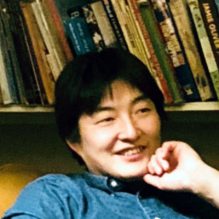-
About
- Kyoto Prize
-
Research Grants
-
News
This website uses cookies to improve the user experience. If you continue on this website, you will provide your consent to our use of cookies.
About
Research Grants
News

Assistant professor,Faculty of Science, Ibaraki University*Profile is at the time of the award.
2020Inamori Research GrantsBiology & Life sciences
The number of neural stem cells reflects the total number of neurons in the mature brain. As neural stem cells arise from neuroepithelial cells, the neuroepithelial cell population must be expanded to secure a sufficient number of neural stem cells. However, molecular mechanisms that regulate timely differentiation from neuroepithelial to neural stem cells are largely unclear. Here, we show that TCF4/Daughterless is a key factor that determines the timing of the differentiation in Drosophila. The neuroepithelial cells initiated but never completed the differentiation in the absence of TCF4/Daughterless. We also found that TCF4/Daughterless binds to the Notch locus, suggesting that Notch is one of its downstream candidate genes. Consistently, Notch expression was ectopically induced in the absence of TCF4/Daughterless. Furthermore, ectopic activation of Notch signaling phenocopied loss of TCF4/Daughterless. Our findings demonstrate that TCF4/Daughterless directly inactivates Notch signaling pathway, resulting in completion of the differentiation from neuroepithelial cells into neural stem cells with optimal timing. Thus, the present results suggest that TCF4/Daughterless is essential for determining whether to move to the next state or stay in the current state in differentiating neuroepithelial cells.
Chika Akiba, et al. (2024) bHLH family proteins control the timing and completion of transition from neuroepithelial cells into neural stem cells. Development 151 (18) doi: https://doi.org/10.1242/dev.202630
Biology & Life sciences

